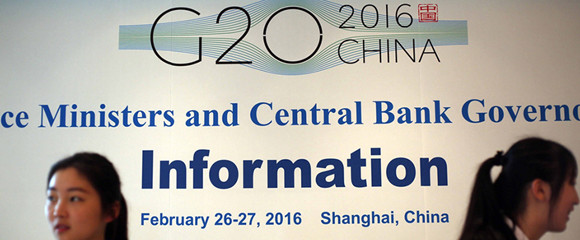Chinese diplomat says South China Sea tribunal has no jurisdiction
Updated: 2016-05-13 00:32
(Xinhua)
|
|||||||||
BEIJING -- A senior Chinese diplomat said on Thursday that the Arbitral Tribunal on the South China Sea had no jurisdiction and its ruling would be invalid under international law.
The tribunal misinterpreted the United Nations Convention on the Law of the Sea (UNCLOS), catered to the Philippines' claims and violated the basic principle that rulings must be based on facts and laws. Its stance is neither fair nor objective, and its decision on jurisdiction would be unconvincing, said Xu Hong, the Foreign Ministry's director general of treaties and law.
He told a press conference that an application for arbitration has to meet at least four preconditions, and the Philippines, who initiated the South China Sea arbitration against China at the Permanent Court of Arbitration in The Hague in early 2013, had not met any of them.
According to Xu, if the subject matter is beyond the scope of the UNCLOS, the dispute shall not be settled by compulsory arbitration.
For example, issues of territorial sovereignty may not be settled by compulsory arbitration. In January 23, 2013, one day after the arbitration process began, the Philippines issued a document that clearly stated that the arbitration was about sovereignty, Xu said.
Any signatory to the UNCLOS may declare that it will not accept compulsory arbitration with respect to disputes concerning maritime delimitation, historic bays or titles, military and law enforcement activities, prohibiting other UNCLOS contracting states from initiating arbitration, Xu said.
China has declared that compulsory dispute settlement procedures do not apply to maritime delimitation, therefore the Philippines is wrong to have gone to arbitration, Xu said.
If disputing parties have agreed on other means of settlement, compulsory arbitration is not an option. According to Article IV of the Declaration on the Conduct of Parties in the South China Sea (DOC), signed between China and the Association of Southeast Asian Nations (ASEAN) in 2002, all sides, including the Philippines, agreed to settle territorial disputes through negotiation and consultation by the countries directly concerned.
Parties involved in disputes are also obliged to discuss the means of settlement first, which, Xu said, the Philippines did not do.
"These preconditions bar UNCLOS contracting states from initiating arbitration," Xu said.
The tribunal in this case has failed to comply with the preconditions, and China will neither accept not recognize the decision made by the tribunal, Xu said.
Related Stories
Next Philippine leader faces new South China Sea horizon 2016-05-11 09:14
China warns US against shows of strength in South China Sea 2016-05-10 20:38
Financial Times published a signed article by Ambassador Liu Xiaoming entitled "Who is really behind the tensions in the South China Sea?" 2016-05-10 00:39
Stop meddling in the South China Sea 2016-05-08 14:18
Illegal fishing targeted in South China Sea 2016-05-06 08:30
Today's Top News
China vows to step up anti-corruption co-op
Chinese entrants in public speaking contest fight hard
Global anti-corruption summit opens in London
Britain raises threat of terror attacks to higher level
Chinese students to benefit from EU rules easing
Beijing police respond to death in custody
Uncertainty over Brexit impacts UK economy: Report
AC Milan starts sale talks with Chinese investors
Hot Topics
Lunar probe , China growth forecasts, Emission rules get tougher, China seen through 'colored lens', International board,
Editor's Picks

|

|

|

|

|

|







